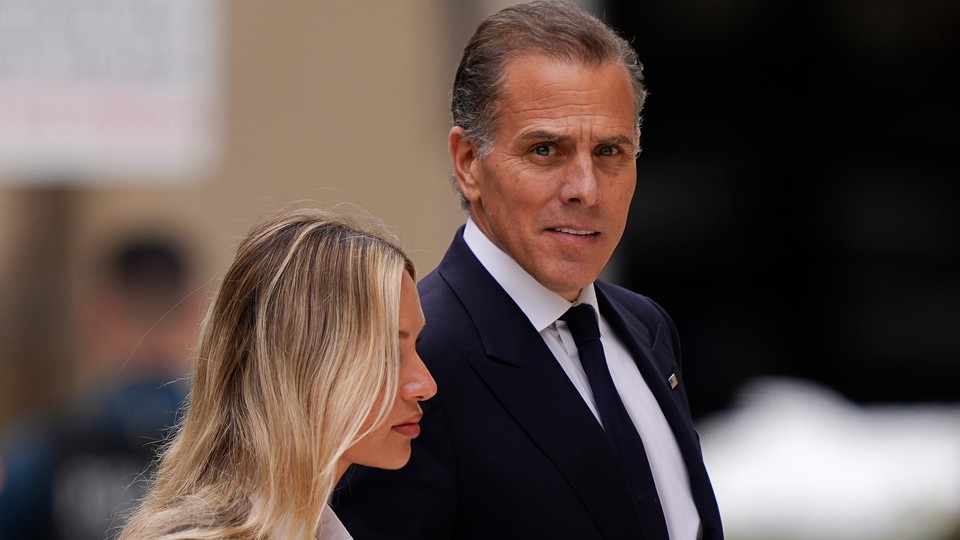The President’s Son Is Found Guilty
4 min read
The federal case against Hunter Biden was not, ultimately, a particularly complicated one. Prosecutors said he’d lied about his drug use when filling out a form to buy a gun. The evidence backed up the claim. And a jury took less than a full day to deliberate before returning a verdict of guilty on three felonies.
The Hunter Biden case is a personal and family tragedy, but like the recent felony conviction of Donald Trump, it is also a demonstration of the strength of rule of law. One test of the American justice system is that a former president can be tried and convicted. A second is that the son of a sitting president can be tried and convicted without political interference.
The cases against Trump and Hunter Biden have a couple major similarities, as it happens. Critics of both saw the decision by prosecutors to bring charges as politically motivated. As I wrote after the Trump verdict, it’s reasonable to believe that politics were at play—Manhattan District Attorney Alvin Bragg is an elected official in a Trump-skeptical jurisdiction—but wrong to conclude that this negates the case.
Similarly, Hunter Biden might well not have faced any charges at all if he were not the son of the president. Trey Gowdy, a former federal prosecutor and Republican member of Congress, recently argued on Fox News that the case was dubious and wouldn’t have been brought “if this were Hunter Jones or Hunter Smith.” Gowdy noted that cases of prosecuting drug users for lying on forms are extremely rare.
Perhaps some selective prosecution was at play here; hardly anyone would argue this was the most important case for public safety. Hunter Biden for years benefited from his proximity to power, and now is experiencing the flip side of that. (Much of Hunter Biden’s most distasteful behavior is, in fact, legal.)
The problem is that once the case was brought, Hunter Biden didn’t have much other defense to offer. As with Trump, few of his champions were prepared to argue that he was innocent. (His attorneys contended that Biden was not using drugs at the specific time he filled out the application and that he may have understood the form narrowly—an argument that jurors evidently didn’t buy about a Yale-trained lawyer.)
Biden’s case went to trial only after an attempt at a plea deal foundered, and he opted to fight the charges; Trump declined to argue to a jury that he had committed misdemeanors rather than felonies, preferring to take the risk of a felony conviction. Neither man has yet been sentenced. Hunter Biden also will face a trial for separate federal tax charges in California in September.
The similarities between the two cases are limited, though. As Kate Shaw noted in these pages one year ago, Trump has responded to being charged (and now convicted) with an outright attack on the justice system’s basic integrity. President Joe Biden, by contrast, has remained supportive of his son but defended the process and refused to intervene. He said last week he would not pardon Hunter if he were convicted, and in a statement today said, “I will accept the outcome of this case and will continue to respect the judicial process as Hunter considers an appeal. Jill and I will always be there for Hunter and the rest of our family with our love and support.”
Moreover, Hunter Biden’s conviction shows the emptiness of Republican accusations that Joe Biden is “weaponizing” the Justice Department against his enemies. Not only did federal prosecutors charge and convict the president’s son, they are also currently trying Senator Bob Menendez, a New Jersey Democrat, for corruption, and have brought charges against Representative Henry Cuellar, a Texas Democrat. Meanwhile, Trump and his allies continue to promise that he will actually use the Justice Department to get even with his political opponents.
A system in which rule of law is strong and valued does not mean every citizen agrees with every verdict, or that every prosecution is righteous. But it does mean one in which due process exists and no one is above the law, no matter his political connections.



